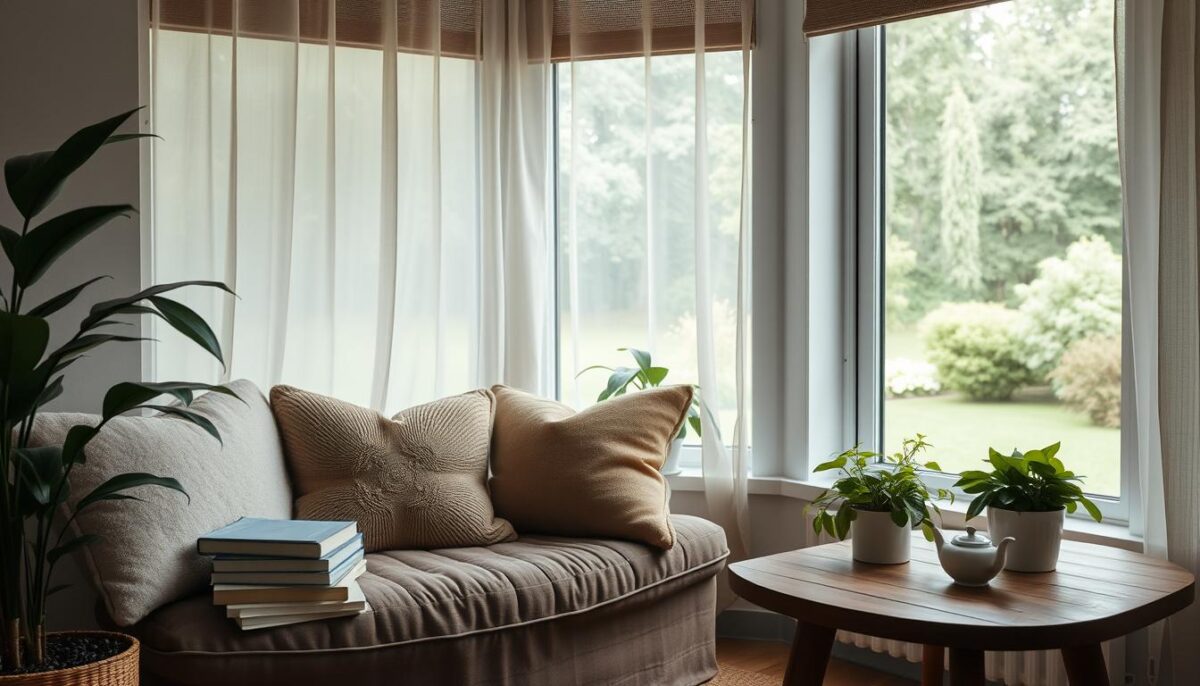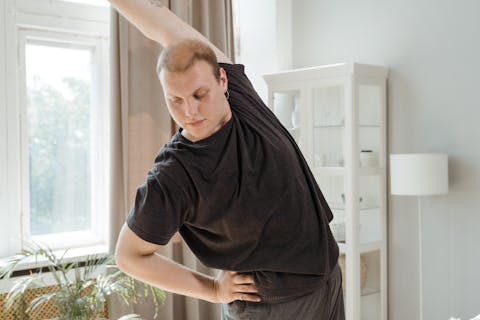In today’s fast-paced world, mental health tips are crucial. They help us live a balanced life amidst the chaos. Using daily stress management techniques is key to keeping our wellbeing in check. As mental health awareness grows, adding stress relief strategies to our daily routine is now common.
In this guide, we’ll explore why managing stress and anxiety is vital. It’s not just for quick fixes but for lasting health and happiness.
Key Takeaways
- Mastering stress and anxiety is a critical component of maintaining overall mental health.
- Adapting tailored stress relief strategies can lead to consistent and long-term wellness.
- Integrating mental health tips into everyday life is both a preventative and restorative measure.
- Engaging in daily stress management techniques can improve quality of life and bolster resilience.
- Finding the right balance of techniques will vary individually and calls for personal exploration.
Understanding Stress and Anxiety in Modern Life
In today’s fast world, stress and anxiety are big problems, affecting millions. Finding ways to coping with anxiety is key for good mental health and a happy life. Learning about these issues, their causes, and symptoms can give people useful anxiety management tools.
The Science of Stress and Anxiety
Studies by groups like the American Psychological Association show stress triggers hormones like cortisol and adrenaline. These hormones help us react to danger but can harm our health if overused.
Common Sources of Stress
Modern life is full of stressors, from tough work to endless digital alerts. The Mayo Clinic lists these, plus personal and health issues, as main stressors. People often look for ways to deal with this stress.
Recognizing Anxiety Disorders
Knowing the different types of anxiety disorders is important for getting help fast. Groups like the Anxiety & Depression Association of America break them down into types like Generalized Anxiety Disorder (GAD) and Panic Disorder. Each has its own signs.
Knowing the causes and signs of stress and anxiety is the first step to managing them. With the right help and anxiety management tools, beating these issues is possible.
How to Manage Stress and Anxiety in Daily Life
Managing stress and anxiety is key to staying healthy in today’s fast world. Adding mindfulness practices and stress management techniques to our daily lives can boost our well-being. Here are some strategies to help you relax and stay mindful.
- Create a Daily Mindfulness Routine: Make time each day for mindfulness exercises like meditation, deep breathing, or yoga. These activities calm your mind and lower anxiety.
- Adopt Healthy Physical Habits: Regular exercise, like walking or swimming, can reduce stress. Combine this with a healthy diet and enough sleep for a strong stress management base.
- Set Realistic Goals and Priorities: Knowing your limits and setting goals can prevent too much stress. Learn to say no and focus on what’s important to keep your schedule manageable.
- Connect with Others: Talking and socializing can help ease stress. Sharing with friends, family, or a professional can offer new views and support.
- Engage in Continuous Learning: Keep learning new stress management techniques and improve your mindfulness practices. Knowing about stress and its effects on your body is crucial for controlling anxiety.
Most importantly, adding these mindfulness practices and stress management techniques to your daily life can lower anxiety. It also helps you deal with stress better in the future.
Stress Management Techniques for a Balanced Lifestyle
Learning to manage stress can greatly improve your life. It helps you feel balanced and well. By managing your time well and creating supportive spaces, you can live a healthier life.
Time Management Strategies
Good time management is key to less stress and more productivity. Harvard Business Review says focusing on what’s important helps you feel less overwhelmed. Here are some tips:
- Know which tasks are most important to you.
- Use calendars and to-do lists to stay on track.
- Break big tasks into smaller ones.
- Share tasks with others when you can.
Using these methods can help you stay focused and handle daily tasks better.
Creating a Supportive Environment
Creating calm spaces at home and work can help reduce stress. The Centers for Disease Control and Prevention say our surroundings are important for managing stress. Here’s how to make a supportive space:
- Keep your areas tidy to feel more relaxed.
- Add plants and natural elements for better air and calm.
- Choose comfy lighting and furniture to avoid strain.
- Talk openly and build strong relationships for support.
Creating such spaces helps you feel better right away and supports long-term wellness.
By using these strategies and making spaces that support well-being, you’re on the path to a healthier life. Remember, the best way to manage stress is to make it a part of your daily life.
Reducing Anxiety through Mindfulness and Meditation
In today’s fast world, managing anxiety is key. Adding mindfulness practices and guided meditation practices to your day can lower anxiety. It also boosts your overall well-being.
Introduction to Mindfulness
Mindfulness means focusing fully on the present moment. It’s about accepting things as they are, without judgment. Regular mindfulness can reduce stress, improve emotional control, and boost health.
Guided Meditation Practices
Guided meditations have a narrator who guides you through relaxation and visualization. The UCLA Mindful Awareness Research Center and apps like Headspace offer these sessions. They help you relax deeply and become more aware.

| Practice | Benefits | Sources |
|---|---|---|
| Mindfulness | Reduces stress, Improves concentration, Increases empathy | Mindful.org, American Mindfulness Research Association |
| Guided Meditation | Enhances emotional health, Promotes relaxation, Helps sleep | UCLA, Headspace |
Mindfulness practices and guided meditation practices offer a break from daily stress. They improve mental health and overall well-being. These practices are easy to start, whether alone or with digital tools. Regular use can greatly improve your life and help fight anxiety.
Coping with Anxiety: Practical Tools to Use Anywhere
Life can feel overwhelming, especially for those with high anxiety. Luckily, there are anxiety management tools that help you stay calm and in control, anywhere you are.
One simple yet powerful way to handle anxiety is through focused breathing exercises. You can do these anywhere, like at work, on public transport, or in social situations. They help lower your anxiety a lot.
“Focusing on deep, regular breaths can activate the body’s relaxation response and diminish the symptoms of anxiety.”
Also, many apps help manage anxiety every day. They offer guided meditation and tools to track your anxiety. These apps give you support and insights into your mental health.
- Headspace: Offers guided meditation for stress reduction
- Calm: Provides breathing exercises and sleep stories to help lower anxiety levels
- Insight Timer: Features a vast library of free meditations and courses focused on anxiety and stress management
If you like something you can hold, a stress ball or fidget spinner can help. They let you release tension that comes with anxiety.
| Tool | Description | Usage Tip |
|---|---|---|
| Breathing Apps | Apps that guide users through various breathing techniques. | Use during a break at work for 5-10 minutes to refocus and calm down. |
| Anxiety Journals | Apps/Journals that allow tracking of anxiety triggers and thoughts. | Journal nightly to reflect on the day’s events and feelings. |
| Physical Tools | Items like stress balls or fidget spinners. | Keep on hand to use during high stress or anxiety moments. |
By adding these anxiety management tools to your daily routine, you build a personal toolkit. It’s ready to help whenever you feel stressed or anxious. This makes it easier to keep your mental health in check and improve your life quality.
Natural Ways to Reduce Stress and Promote Relaxation
Finding natural ways to reduce stress is crucial for our mental health. We look at herbal remedies and physical activities that help us relax. These methods can lead to lasting changes in our lifestyle.
Herbal Remedies
The National Center for Complementary and Integrative Health has found several herbs that help with stress. Adaptogens like ashwagandha and rhodiola help the body fight stress. Chamomile and lavender are known for their calming effects and are used in teas and oils.
The Mayo Clinic advises talking to a healthcare provider before using these supplements. This ensures they’re safe for you and won’t harm your current treatments.
Importance of Exercise in Stress Reduction
Adding exercise to your routine is a great way to fight stress. The American Heart Association says exercise releases endorphins, which make us feel better. This is why it’s often recommended for anxiety management.
The Anxiety and Depression Association of America says even a short workout can help with anxiety. Whether it’s walking, yoga, or intense workouts, finding what works for you can greatly improve your mental health.





